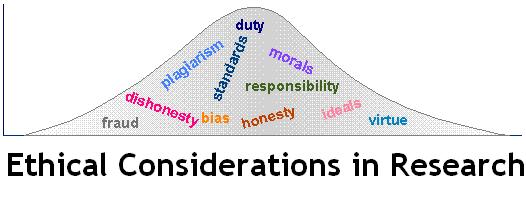Introduction
Are you grappling with the complexities of dissertation research? You’re not alone. Many students face the daunting task of navigating the intricate world of academic research. In this article, we’re here to provide you with valuable insights and dissertation help on “The Role of Ethical Considerations in Dissertation Research.”
Dissertation research is a significant challenge, and while you’re striving to produce a high-quality thesis, you might be wondering how ethical considerations fit into the picture. Well, you’ve come to the right place. We’ll explore the pivotal role that ethical considerations play in your research journey, ensuring that you not only meet academic standards but also contribute to the betterment of your field.
Ethical considerations aren’t just a set of rules to follow; they are your guiding compass, helping you make informed decisions, protect participants, and uphold the credibility of your research. Let’s delve into this essential aspect, so you can embark on your dissertation research with confidence and integrity, and consider seeking ethical guidance from an online assignment help service in Canada.
The Importance of Ethical Considerations
Ethical considerations form the backbone of any research project. They are essential for several reasons:
Ensuring Credibility
Ethical research practices enhance the credibility of your dissertation. When you adhere to ethical standards, your research becomes more reliable and trustworthy.
Protecting Participants
One of the primary ethical considerations in research is the well-being of participants. Ensuring their safety and consent is crucial. This ethical foundation fosters trust between researchers and participants.
Contributing to Knowledge
Ethical research doesn’t just benefit the individual project; it contributes to the collective body of knowledge. Research that follows ethical principles builds on a solid foundation, helping society advance.
Ethical Principles in Research
To maintain the highest ethical standards in your dissertation research, consider the following principles:
Informed Consent
Obtaining informed consent from participants is non-negotiable. They must fully understand the research’s purpose, potential risks, and their rights before agreeing to participate.
Anonymity and Confidentiality
Protecting the identity and personal information of research participants is crucial. Anonymity and confidentiality must be maintained throughout the study.
Honesty and Transparency
Researchers must be transparent about their methods, data collection, and potential conflicts of interest. Honesty is essential to maintain trust.
Avoiding Harm
Researchers must take every precaution to avoid physical or psychological harm to participants. The well-being of individuals should always come first.
The Role of Ethical Considerations in Dissertation Research
In your dissertation research, ethical considerations are not just a set of rules to follow; they are the guiding principles that shape your entire research journey. From the initial idea to data collection, analysis, and conclusions, ethics should be at the forefront of your decision-making.
FAQs
Q: What happens if I don’t follow ethical considerations in my research?
A: Failure to follow ethical considerations can lead to severe consequences, including the rejection of your research, damage to your academic reputation, and in some cases, legal implications. It’s important to keep these dissertation tips in mind to ensure your research adheres to ethical standards.
Q: Can ethical dilemmas arise in dissertation research?
A: Yes, ethical dilemmas can emerge, such as conflicts between participant rights and research objectives. It’s crucial to address these dilemmas with care and consult with mentors or ethics committees.
Q: Are there universal ethical principles in research?
A: While some principles are universal, specific ethical guidelines may vary depending on the field of study. Always consult with your institution’s ethics committee and adhere to their guidelines.
Q: How can I ensure ethical data collection?
A: To ensure ethical data collection, obtain informed consent, maintain anonymity and confidentiality, and continuously assess the potential impact on participants.
Q: What’s the role of ethics committees in research?
A: Ethics committees review research proposals to ensure they meet ethical standards. They play a vital role in upholding the integrity of academic research.
Q: Is it possible to rectify ethical violations in research?
A: Depending on the severity of the violation, you may be able to rectify it by addressing the issue, seeking guidance from mentors or ethics committees, and making necessary amendments.
Conclusion
Ethical considerations are the compass that guides your dissertation research. They ensure the credibility, trustworthiness, and lasting impact of your work. Embracing ethical principles is not just a requirement; it’s a commitment to conducting research that contributes positively to your field and society as a whole.
Remember, ethical research is not a constraint but a powerful tool that empowers you to make a meaningful contribution to your academic community.
